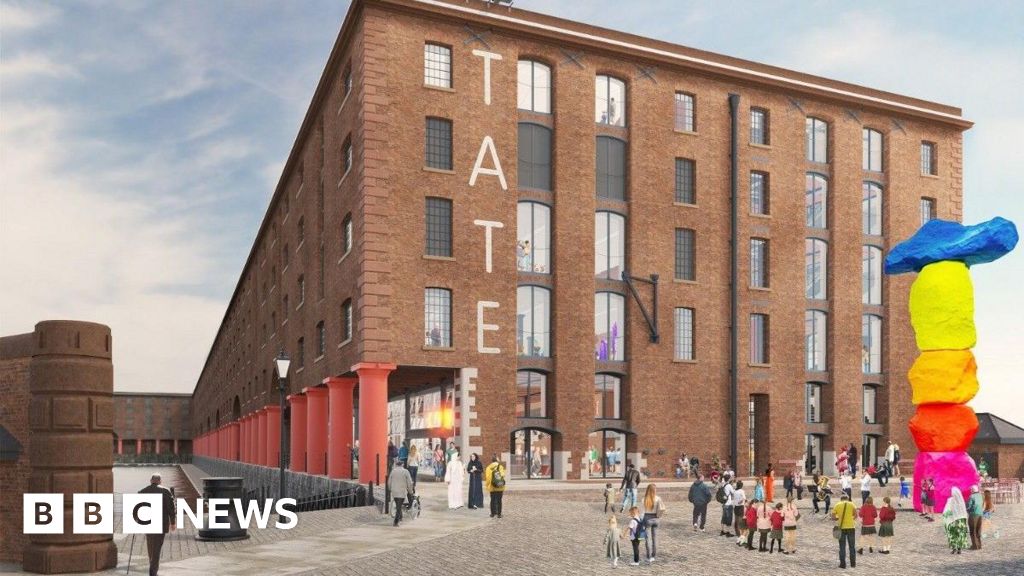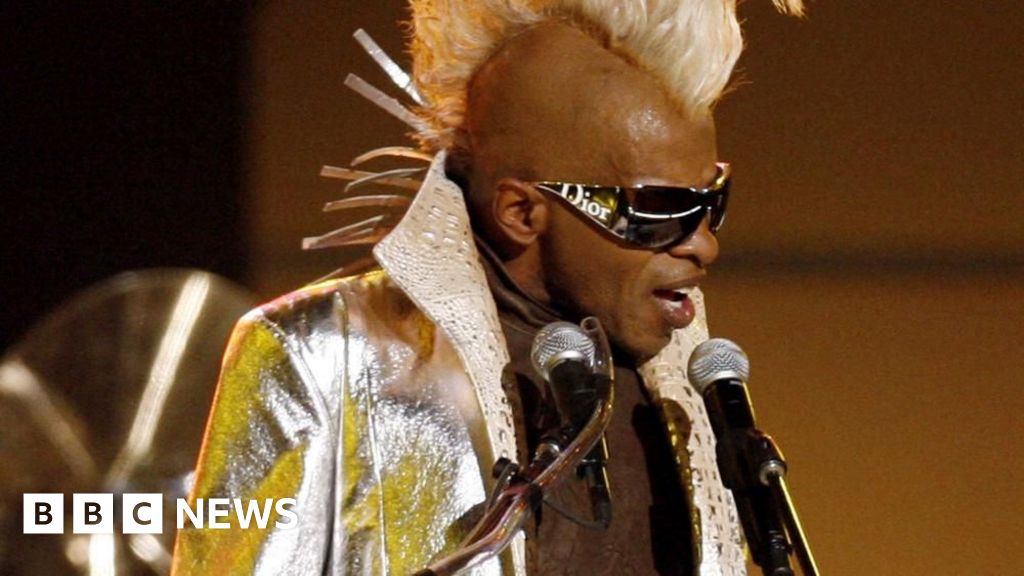ARTICLE AD BOX
Fighting for the Parthenon marbles
By Katie Razzall
Culture and media editor, BBC News
The Parthenon Sculptures "belong here in the UK" and should not be returned to Greece, the culture secretary has insisted.
The ancient artworks, better known in the UK as the Elgin Marbles, are currently in the British Museum.
Reports have suggested the museum's chairman, George Osborne, is close to agreeing a deal with Greece.
Michelle Donelan told BBC Radio 4's The Media Show that permanently returning them was "not his intention".
In a wide-ranging interview, she told me sending the sculptures to Greece would "open a can of worms" and be a "dangerous road to go down".
It would "open the gateway to the question of the entire contents of our museums", she said.
The classical marble sculptures are part of a frieze that decorated the Parthenon temple in Athens. They were removed in the 19th Century by British diplomat and soldier Lord Elgin. The British government bought them in 1816 and placed them in the British Museum.
Last month, Greek newspaper Ta Nea reported that talks between Mr Osborne and the Greek government were at "an advanced stage".
The British Museum is prevented by law from permanently returning the artworks to Greece. But there was speculation that a deal could involve the sculptures heading to Athens on loan in rotation, in return for classical objects that have never been seen outside Greece before.
Greece has been pushing for years to get the artworks back.
Ms Donelan's assertion that she will not change the law, which is "in the right place", will be met with anger in Athens and beyond.
She said she'd had "several conversations" with Mr Osborne, the former chancellor. "I think his view on this has been misinterpreted and certainly portrayed wrongly," she said.
"He's not about to send them back, basically. That's not his intention. He has no desire to do that. There's also been this concept of a 100-year loan mooted as well, which is certainly not what he's planning either.
"He would agree with me that we shouldn't be sending them back, and actually they do belong here in the UK, where we've cared for them for a great deal of time, where we've allowed access to them."
Michele Donelan said the sculptures were "assets of our country that we have cared for, that we've looked after, that we've allowed the world to see"
The BBC has approached Mr Osborne for comment.
Separately on Wednesday, the Greek prime minister said a deal to get the sculptures back was not imminent.
But Kyriakos Mitsotakis, who is hoping to win a second term in office in July, said: "If the Greek people trust us again, I believe we could achieve this target after the elections."
The Greek culture ministry has previously said the country's "firm position" is that "it does not recognise the British Museum's jurisdiction, possession and ownership of the sculptures".
The Parthenon Project, which has been campaigning in the UK for a "win-win" solution to reunite the objects, said there was public support for a deal and that "we need to remain open minded about the kind of solution George Osborne is putting forward".
A spokesperson said: "The government has always made clear that this is a matter for the British Museum but now that constructive talks between the British Museum and Greece have been confirmed, they seem to be changing their mind."
Lord Vaizey, culture minister from 2010-2016, still believes a deal is possible. He chairs the project's advisory body. He told me that Ms Donelan's comments had "left room for George Osborne to continue to negotiate his imaginative proposal for a cultural partnership with Greece".
Clarkson 'had the right' to write Meghan column
Image source, Getty Images
Image caption,Prince Harry described Clarkson's article as "horrific and hurtful and cruel towards my wife"
Ms Donelan also commented on the controversy surrounding Jeremy Clarkson's recent column about the Duchess of Sussex.
In December, after the Harry & Meghan Netflix documentary aired, Clarkson wrote in the Sun newspaper about his "hatred" of Meghan, comparing her to serial killer Rose West.
He talked of wanting her to be "paraded naked through the streets" and dreaming of "people throwing lumps of excrement at her".
Ms Donelan told me: "I defend his right to be able to say what he wants."
The column sparked a record 25,000 complaints to IPSO, the press regulator, which is now investigating.
Clarkson later said he was "horrified to have caused so much hurt", and the Sun apologised and took the article down.
The culture secretary told me she "categorically" doesn't align herself with the comments, but said: "I believe in freedom of speech very strongly… I think he had the right to say what he wanted to say."
Dorries 'entitled to her view' on Channel 4 rethink
Last week, Ms Donelan announced the government would reverse its controversial decision to sell Channel 4.
Her predecessor Nadine Dorries had said privatisation could raise £2bn and protect Channel 4 in the long-term.
But Ms Donelan said she had reviewed the business case and concluded that taking the broadcaster out of public ownership was not the best way to ensure its sustainable future.
Ms Dorries has criticised the decision on Twitter, as part of a wider critique. "Three years of progressive Tory government being washed down the drain," she claimed.
Ms Donelan told me she spoke to Ms Dorries before the decision. "She's entitled to her opinion on these things… She comes at this from a different point of view, but we both share that concern around sustainability," she said.
Ms Donelan denied the original decision to privatise Channel 4 had been ideological, with some even suggesting it was payback for a channel perceived as anti-conservative.
"Fundamentally what fuelled this agenda in the first place was around sustainability and looking after taxpayers' interests… As part of the package, I'm delighted that we managed to get Channel 4 to agree to double their investment in skills to £10m."
The channel will also double the number of jobs outside London.
BBC licence fee 'will be problematic'
Before she became culture secretary in September, Ms Donelan referred to the BBC licence fee as an "unfair tax".
In this interview, she told me: "I haven't shifted my opinion at all."
The government plans a review of the TV licence, which funds the BBC. Ms Donelan described the corporation as a "national asset" that needs to be sustainable in the long-term.
"I think the licence fee on its own will be problematic if we are to make sure that the BBC continues to be the fantastic public service broadcaster that it is," she said. "So I think, yes, that we do need to look at this agenda."
Listen to the full interview on The Media Show on Radio 4 at 16:30 GMT on Wednesday and on BBC Sounds. If you're interested in issues such as these, please follow me on Twitter.

 2 years ago
72
2 years ago
72








 English (US) ·
English (US) ·